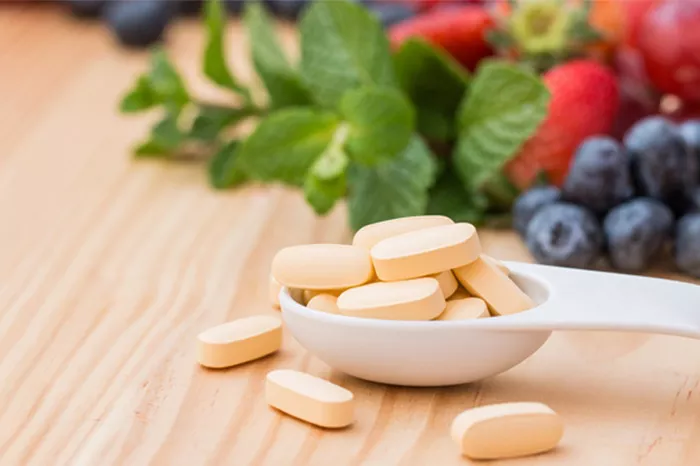Emerging research reveals a strong connection between gut health and male reproductive function. The gut microbiome influences hormone regulation, inflammation levels, and nutrient absorption – all critical factors for optimal fertility. This comprehensive guide examines how specific probiotic strains can enhance male fertility by improving sperm quality, testosterone levels, and overall reproductive health.
The Gut-Fertility Connection
How Gut Health Affects Male Reproduction
Hormone Metabolism
-
- Gut bacteria regulate estrogen detoxification
- Influence testosterone-aromatase activity
- Affect thyroid hormone conversion
Inflammation Control
-
- Chronic inflammation damages sperm DNA
- Probiotics reduce systemic inflammation
- Protect testicular tissue
Nutrient Absorption
-
- Enable absorption of zinc and selenium
- Enhance vitamin D activation
- Improve antioxidant status
Top 5 Probiotic Strains for Male Fertility
Lactobacillus rhamnosus
Fertility Benefits
- Reduces oxidative stress in semen
- Improves sperm motility by 32% in studies
- Lowers inflammatory markers
Mechanism
- Produces lactic acid in reproductive tract
- Competes with harmful bacteria
- Enhances gut barrier function
Effective Dose
- 5-10 billion CFU daily
Bifidobacterium longum
Research Findings
- Increases sperm concentration
- Improves semen viscosity
- Reduces DNA fragmentation
Additional Benefits
- Lowers stress hormone cortisol
- Supports healthy testosterone levels
- Reduces gut inflammation
Recommended Intake
- 3-5 billion CFU daily
Lactobacillus reuteri
Unique Advantages
- Colonizes male reproductive tract
- Reduces pathogenic bacteria
- Improves sperm morphology
Clinical Evidence
A 2020 study showed 25% better motility after 12 weeks.
Optimal Dosage
- 2-5 billion CFU daily
Bacillus coagulans
Spore-Forming Benefits
- Survives stomach acid better
- Reaches intestines intact
- Long-lasting colonization
Fertility Effects
- Reduces oxidative stress markers
- Improves sperm membrane integrity
- Enhances nutrient absorption
Dose
- 1-2 billion spores daily
Saccharomyces boulardii
Yeast Probiotic
- Not affected by antibiotics
- Reduces gut inflammation
- Improves mineral absorption
Research Results
- Associated with higher testosterone
- Supports healthy estrogen metabolism
Usage
- 250-500 mg daily
Choosing the Best Probiotic Supplement
Key Selection Criteria
Strain Specificity
-
- Look for the exact strains listed above
- Avoid generic “probiotic blends”
CFU Count
-
- 10-50 billion CFU per serving
- Higher isn’t always better
Viability Guarantee
-
- Check expiration date
- Look for shelf-stable formulas
Additional Ingredients
-
- Prebiotics (FOS, inulin) enhance effects
- Avoid unnecessary fillers
Clinical Dosing Protocols
General Fertility Support
- 10-20 billion CFU daily
- Combination of 2-3 strains
- Take with morning meal
For Significant Fertility Issues
- 30-50 billion CFU
- Multiple targeted strains
- Continue for 6+ months
Lifestyle Factors That Enhance Results
Dietary Recommendations
- Increase fiber (feeds probiotics)
- Consume fermented foods
- Avoid excessive alcohol
Exercise Guidelines
- Moderate physical activity
- Avoid overheating testicles
- Manage workout recovery
Environmental Protection
- Reduce toxin exposure
- Minimize antibiotic use
- Wear loose-fitting underwear
Potential Side Effects
Common Considerations
- Mild bloating during first week
- Temporary gas or digestive changes
- Rare allergic reactions
Who Should Be Cautious
- Immunocompromised individuals
- Those with SIBO
- People with histamine intolerance
Combination Strategies
With Prebiotics
- Inulin
- Fructooligosaccharides (FOS)
- Galactooligosaccharides (GOS)
With Other Fertility Supplements
- Zinc
- Omega-3s
- CoQ10
Timeline for Expected Results
First Month
- Improved digestion
- Better energy levels
- Reduced bloating
3 Months
- Noticeable semen improvements
- Enhanced libido
- Better stress resilience
6 Months
- Optimal sperm parameters
- Maximum fertility benefits
When to Seek Medical Help
Warning Signs
- No improvement after 6 months
- Severe digestive discomfort
- Allergic reactions
Medical Tests to Consider
- Comprehensive stool analysis
- Sperm DNA fragmentation test
- Hormone panel
Conclusion
Targeted probiotic supplementation represents a promising natural approach to enhancing male fertility. The strains outlined here have demonstrated significant benefits for sperm quality, hormonal balance, and reproductive function in clinical research.
Remember that gut microbiome changes occur gradually. Consistent probiotic use for at least 3-6 months provides optimal results when combined with a fertility-supportive lifestyle.
For men with significant fertility challenges, consult a reproductive specialist to incorporate probiotics into a comprehensive treatment plan.
Related topics:
Does The Menopause Cause Hair Loss?
HRT For Reducing Facial Hair: Causes And Treatment
Top 6 Treatment For Thinning Hair In Menopause


